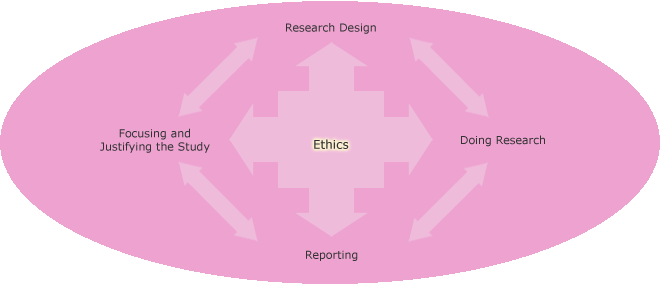Ethics and data protection
Ethical points of view are essential at all stages of the research process from planning to reporting. The research topic, strategies and methodological choices all influence the kinds of ethical questions you need to take into account in the research process. Regardless of your research topic or methods, you must know and obey the common good scientific practices which are collegially accepted by the science community. In addition, the researcher has to often ponder research ethical standpoints in a more detailed way, for example, when researching politically, religiously or culturally sensitive topics.
The Ethical Committee of the University of Jyväskylä has outlined the following guidelines for good scientific practise:
- Honesty, general care and precision in activities (research, recording, presentation and evaluation)
- Ethically solid information retrieval, research and evaluation methods and transparency in publication.
- Taking proper notice of other researchers work and achievements
- The research plan, realization and reporting must follow the set requirements.
- The position, rights, participation in the work and responsibilities and duties of each member of the research group must be clearly defined. Also, before research begins, it must be agreed in writing between the research group and the research subjects about the ownership of the research results and the storing of materials.
- Honest reporting of finances and commitments
- Good planning practices and personnel and economic planning
Links to more information:
Trochim, William M., 2006. Ethics in Research. Research Methods Knowledge Base, 2nd Edition.
The results, interpretations and conclusions, which are produced in the research, are linked to the researchers who produce them, as well as their values, world views, practices and aims. Knowledge interests (the aims of producing knowledge) inevitably affect how you plan, conduct and report your research. Despite the use of objectivism within your research report, production of knowledge is always subjective at some level. Recognition of, awareness of, and discussing the knowledge interests are important elements of research ethics and the reliability of your research.
Links to more information:
MacIsaac, Dan, 1996. The Critical Theory of Jurgen Habermas. Buffalo State College.

